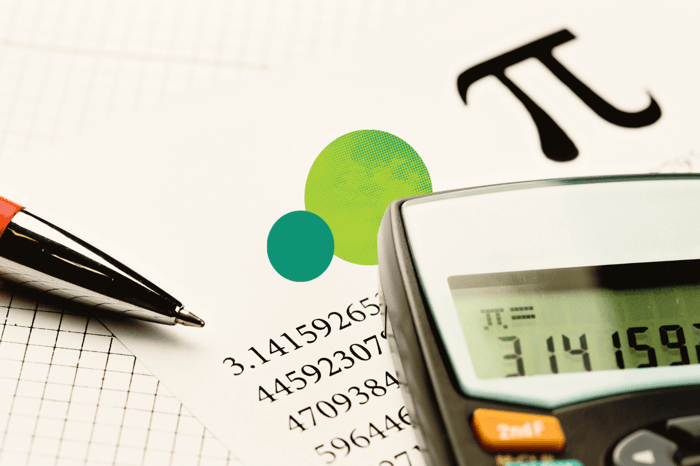March 14th, the high holiday of Math, is the day we celebrate pi (Pi DAY) because pi is represented by the number 3.14. Get it? Got it? Good! Want to learn some fun facts about pi? Watch our new video and enjoy.
More Fun Facts About Pi
- Pi is the ratio between a circle’s circumference and its diameter.
- Your pi will be the same for any circle – whether a Frisbee, an apple pie, a pizza, or a wedding ring. That’s because it’s a ratio, not a measurement of a particular circle.
- To find the area of a circle, the formula is pi x r2. (Pi times the radius squared.) So, to find the area of a circle, measure the length of its widest point across (the diameter), divide that in half (that tells you the radius), and multiply the result times pi (3.14).
- To find the circumference of a circle, the formula is pi x D. (Pi times the diameter.) First measure the width of the circle at its widest point (the diameter) and multiply that times pi (3.14).
Pi is Irrational Forever
- Pi is an “irrational number” which means that it can’t be expressed as the quotient of two integers. For example, there is no number among integers and fractions that equals the square root of 2.
- You can add numbers infinitely to the right of the decimal point in pi and it will never stop. This means you can roll pi out to 3.141593 and on and on and on and on…
- Pi Day is only the start of all the fun. Reminder, you can celebrate pi for the rest of your life because pi goes on forever!
What’s the Best Way to Celebrate Pi Day?
After eating your favorite piece of pie, continue celebrating by enrolling in one of our low cost online math courses. Think about how many pre-reqs you can complete and credit you can earn!
- College Algebra Gain a working knowledge of college-level algebra and its applications. Emphasis is placed upon the solution and the application of linear and quadratic equations, word problems, polynomials, and rational and radical equations
- General Calculus I Study the principles of calculus including derivatives, integrals, limits, approximation, applications and modeling, and sequences and series.
- General Calculus II Learn advanced principles of calculus, including techniques of integration, application of integration, and exponential and logistic models.
- Introduction to Statistics Study the properties behind the basic concepts of probability and statistics and focus on applications of statistical knowledge.
- Introductory Algebra Learn the basic vocabulary of math, and how to perform operations with real numbers, fractions, decimals and percentages. Does not earn college credit.
- Precalculus Receive a thorough instruction and review of common concepts covered in college-level math and prepare for success in General Calculus I.
Any Advice for Students Enrolling in Online Math Courses? As a fan of pi, you're part way there. The next step is to get into the mindset of testing and improving your math skills! Set a schedule and a work plan. These online courses are great entry points into college-level math and science. Make progress at the pace you feel most comfortable, however fast that may be.











